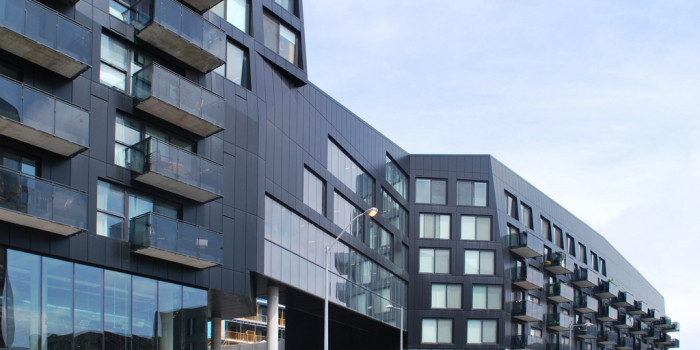
Rent vs. Buy: Can You Afford a Condo in the City?
With degree in hand and memories of an epic travel experience, it’s time to get started on this life thing, so you set your sights on a dream job and a place to call your own. It always starts a little rough, rooming with a few people and serving at a restaurant isn’t exactly the stuff dreams are made of, but hey, it’s a start (and let’s be real, can be a lot of fun). Eventually you do land a job that seems promising and you feel like a grown up who really wants to live solo. So off you go to find an affordable (hopefully 1 bedroom) apartment in a very expensive city. It seems near impossible, but you make some compromises, like living in a basement apt, or maybe keeping just one of those roommates. It occurs to you that if renting is this tough, how will you ever afford to buy??
I recently had a client who purchased a condo after about a year of renting in the city. The process made me reflect on the rent vs. buy debate, so I wanted to share the logic behind what led to his purchase of a 500 square foot condo in Corktown (King East) for $274,000. Spoiler: it is more expensive to Buy, BUT it’s also attainable and here’s why it can make a lot sense. Below is a breakdown of my client’s cost to rent vs. buy:
| Leslieville Basement Apartment | 500 sqft Corktown Condo, $274,000 Purchase Price | |||
| Purchase 5% Down | Purchase 20% Down | |||
| First/Last Deposit | 2,100 | Downpayment | 13,700 | 54,800 |
| Closing Costs | 2,858 | 2,285 | ||
| Total | 2,100 | 16,558 | 57,085 | |
| Rent | 950 | Mortgage | 1,190 | 1,004 |
| Property Taxes | 0 | Property Taxes | 147 | 147 |
| Maintenance Fees | 0 | Maintenance Fees | 217 | 217 |
| Utilities and upkeep | 100 | Utilities and upkeep | 200 | 200 |
| Transit | 130 | Transit | 50 | 50 |
| Gym and Pool Use | 50 | Gym and Pool Use | 0 | 0 |
| Monthly Cost | 1,230 | Monthly Cost | 1,804 | 1,618 |
| Monthly Equity Gained | 0 | Monthly Equity Gained | 650 | 550 |
| Monthly Expenses | 1,230 | Monthly Expenses | 1,154 | 1,068 |
First off, to get into the market, you do need some cash in hand, about $16,500 (5% down payment + closing costs) in this case. So while you’re living in this basement apartment (or in my case, my uncle’s attic) make sure you are saving those pennies. Better yet, share this article with Mom and Dad and get them on board. Tell them that this down payment is all you want for Christmases and Birthdays for the next 20 years, they’ll go for that, right? What makes these two scenarios so comparable is the equity gained. It may seem like your living costs jump $600+ once you purchase, but $600 of your mortgage payment represents your equity, so that jump is actually offset.
A few things to note, firstly, my client moved within a walkable distance to work and will save on transit at least half of the time. He also values the amenities offered in his condo, like the outdoor pool and gym. When you factor in the equity he’s gaining, buying is the better option, not to mention the improvement in his quality of life – the guy’s living in a new condo complete with an awesome balcony and outdoor pool, instead of a basement apartment. If you were to rent a similar condo unit, you would be paying $1,500/month + utilities which makes renting an even less appealing option when you consider that there would be no equity gained.
I should mention that the breakdown above hasn’t accounted for transaction costs, like the legal and realtor fees paid when you sell, or mortgage insurance which is required for purchasing with less than 20% down. When the time comes to sell, you are going to want to recoup 5-6% (of the purchase price) in transaction costs if you’ve put 20% down, and 9-10% when you’ve put 5% down. I also realize that you could have success investing your down payment and the $600 equity/savings amounts elsewhere.
The reason I wanted to write about this topic is because when I’m talking to young professionals, the sense I get is that they feel like they’ll never be able to buy. There tends to be to focus on the big numbers, like the down payment and your mortgage payment. And yes, your cash flow should be a consideration. If you can’t make it work, then you can’t make it work, but if you’re renting for $1000 and putting away $600 a month, then this is a realistic scenario for you. And if you are renting something similar for $1,500/month, stop and think about how much equity you are losing out on. If you think the market is likely to appreciate 2-3% / year over the next 5 years, purchasing a condo might be more attainable and sensible than you thought.
Have a question? Want to run some numbers? Drop me an email at andrew@relativerealty.com.
